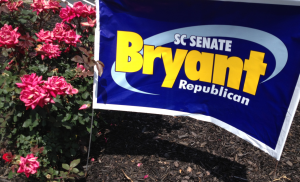The State: $292 million added to state budget An increase in jobs the past 12 months will bolster state income tax receipts By ADAM BEAM
State economists added an extra $292 million to the state budget Tuesday, the result of South Carolina adding 26,000 jobs over the last 12 months.
More people working means more people are paying state income taxes. In October, when state economists released their first revenue forecast, South Carolina had a 10.5 percent unemployment rate.
Six months later, the unemployment rate was 8.9 percent – the first time South Carolina has had fewer than 200,000 people on unemployment rolls in more than three years, according to Robert Martin, a state economist. “That’s a very positive sign.”
State income tax refunds also were down $93 million, which means more money for the state.
The state Board of Economic Advisors unanimously approved adding the money to the state budget Tuesday.
It is the second time in recent months that the board has added money to the state budget. In November, the board added more than $1 billion in new money to the budget, about half onetime money and the rest projected to recur annually.
Tuesday’s revised forecast calls for an additional $137 million in one-time money for the budget year that ends June 30. State lottery officials also added an extra $18 million in one-time revenue after that agency saw a surge in ticket sales preceding the Mega Millions record jackpot in March. Lawmakers most likely will spend the one-time money, meaning it won’t be available next year, on state construction projects.
But the big move was to add an extra $137 million in recurring money for the state’s budget year that begins July 1. That money should be available in future years to spend as well, meaning lawmakers can spend it on recurring obligations.
And fight over it.
Tuesday afternoon, after learning of the new state money, state Sen. Kevin Bryant, R-Anderson, proposed a budget amendment to use $93 million of the new recurring money to pay for two tax-cut proposals passed by the House of Representatives.
The first would cut state income taxes by about $84 a year for most taxpayers, reducing state revenue next year by $78 million. The second would cut taxes for small business owners, reducing state revenue next year by $15 million.
“Of the close to $1 billion in new money brought in this year, this is less than 10 percent,” Bryant said of the proposed tax cuts. “If 10 percent is good enough for the Lord, I think 10 percent might be good enough for the taxpayer.”
State Sen. Hugh Leatherman, R-Florence, the chairman of the Senate’s budget committee, told Bryant that he supported the tax cut for small businesses but asked Bryant to withdraw his amendment so lawmakers could have more time to study it.
If Bryant can get his amendment passed, he likely would find support in the House and the governor’s office.
Gov. Nikki Haley has long advocated for lawmakers to use any extra money either to pay down state debt or to return to taxpayers. Rob Godfrey, Haley’s spokesman, said Tuesday, “The governor believes it’s time to give the people and businesses this state tax relief.”
Rep. Brian White, R-Anderson, head of the House budget panel, said he supports using the extra money to pay for the House’s proposed tax cuts. He cautioned against rushing to spend the new money, especially when the state is only a few years removed from a budget crisis that caused massive cuts in state spending.
“The growth is there,” White said. “I was just shocked the growth was $137 million. On the one hand, that’s good that we are growing, but we need to manage that money wisely.”
Bryant, a Tea Party Republican, is not optimistic that will happen. “All this money is going to be spent,” he said. “I hope I’m wrong.”





